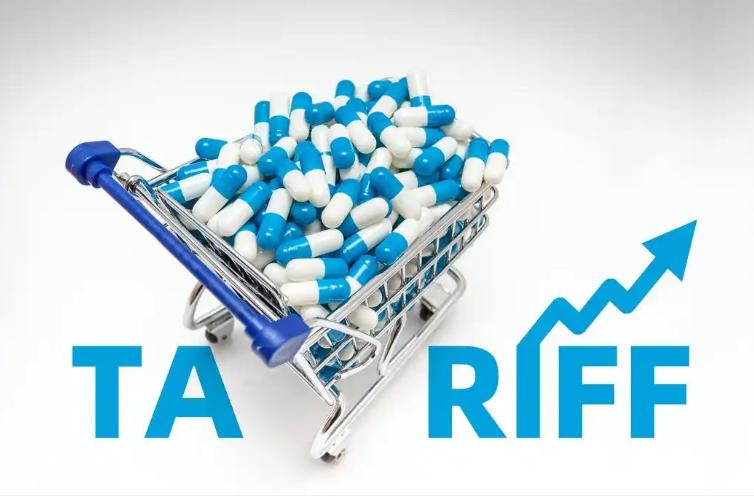
On September 25th local time, US President Trump dropped a bombshell on social media: Starting from October 1st, the US will impose a 100% tariff on all imported brand-name or patented drugs, and he also declared that "building factories in the US can exempt from the tariffs". This is not an ordinary trade friction, but a "limiting pressure" on the global pharmaceutical industry, which instantly tore apart the 15% drug tariff agreement that the US and Europe had just reached in August. The US is the largest export market for German pharmaceutical companies. In 2024, German pharmaceutical exports to the US reached 27 billion euros, accounting for one quarter of the industry's total exports. If this tariff policy is implemented, German pharmaceutical companies will face a huge impact. The German pharmaceutical industry and the pharmacist organization expressed strong concerns.
The announcement of this plan has brought complex and multi-faceted impacts on various aspects. First, it has an impact on the German economy. After imposing a 100% tariff, the cost of German pharmaceutical exports to the US will increase significantly, leading to a decline in product price competitiveness and a sharp reduction in export volume. This will directly affect Germany's overall export performance and pose pressure on economic growth. For small and medium-sized pharmaceutical companies that cannot pass on costs through price hikes, they may face the risk of zero profits or even losses. Large pharmaceutical companies have already built factories in the US, but the high investment cost and the need for time for capacity expansion make it difficult for them to fully absorb the impact of tariffs in the short term. This will weaken the international competitiveness of German pharmaceutical companies and affect their long-term development. The German Economic Experts Committee has lowered Germany's economic growth forecast for 2025 to zero, with US trade policy being one of the main reasons for the downward adjustment of the growth forecast. The research of the German Economic Institute shows that the "equivalent tariffs" measures by the US may lead to a cumulative loss of 290 billion euros for the German economy from 2025 to 2028, equivalent to about 1.6% of the annual GDP.
Second, it has an impact on international trade relations. After the US imposing tariffs, the share of German pharmaceutical companies in the US market may be replaced by other enterprises. The US imposing tariffs on German pharmaceutical companies violates the previous trade arrangement between the US and Europe, which has a tariff cap of 15%. This has aroused strong dissatisfaction from German and European pharmaceutical industries. This will exacerbate the tension in the US-EU trade relationship and pose a threat to the global trade order. German Chancellor Merkel warned that the US government's tariff policy is changing frequently and harming itself, and the German-US and even the EU relationship has changed. The transatlantic partnership is facing severe challenges. To avoid tariff barriers, German pharmaceutical companies may accelerate the relocation of their production chains to the US or other countries with lower tariffs. This will lead to a reduction in local employment opportunities and an increase in the risk of industrial hollowing out.
Third, it has an impact on the investment field and supply chain. The German Research-based Pharmaceutical Industry Association pointed out that the high tariffs have led to a freeze in investment in the pharmaceutical sector. Enterprises, in order to avoid risks, may postpone or cancel investment plans in Germany and shift resources to markets with lower tariffs. In the long term, the investment freeze will affect the R&D capabilities of German pharmaceutical companies. New drug research and development requires a large amount of capital investment. If enterprises reduce their R&D budgets due to tariff pressure, it may lead to a slowdown in the launch of innovative drugs and affect industry competitiveness. If the US imposes tariffs on German exported drugs, it may trigger trade countermeasures, causing the prices of raw materials and finished drugs imported by Germany from the US to rise or be disrupted. This will undermine the stability of Germany's supply chain, affecting production efficiency and product quality. The German Pharmacists Association warned that the supply of key drugs has been unstable for many years, and if affected by US tariffs, production may be reduced due to lack of economic benefits. For example, common drugs such as antihypertensive drugs and fever-reducing drugs may reduce production due to cost increases, leading to a shortage of domestic drug supply in Germany.
In conclusion, the German pharmaceutical companies' exposure to US tariffs has triggered a domino effect in the economic field, causing a chain reaction. This series of impacts not only weakened the international competitiveness of German pharmaceutical companies but also posed a serious challenge to the overall recovery and long-term development of the German economy. Therefore, it is urgent for both the policy level and the industry itself to take active responses and make adjustments.

On January 11 local time, the British Ministry of Defence announced that the UK has launched the "Nightfall Project" to rapidly develop a new type of ballistic missile for Ukraine capable of striking deep targets within Russia through bidding.
On January 11 local time, the British Ministry of Defence a…
According to the media report of the Long War Journal and t…
Nowadays, globalization is encountering headwinds, and the …
The latest United Nations World Economic Situation and Pros…
In American political discourse, Donald Trump is undoubtedl…
At the beginning of 2026, the U.S. Treasury Department face…